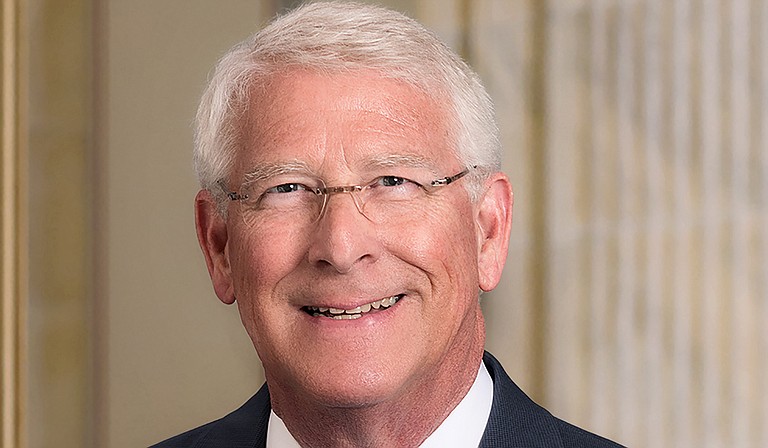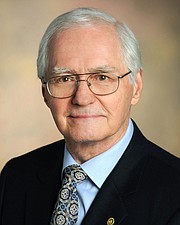U.S. Sen. Roger Wicker believes in “limited government,” except when he doesn’t, columnist Richard Conville writes. Plus, he says, it hasn’t worked. Photo courtesy U.S. Senate
Wednesday, June 2, 2021
We seem to be of two minds when it comes to the size of government in America. A recent example comes to mind: U.S. Sen. Roger Wicker introduced a restaurant revitalization amendment to the American Rescue Plan then making its way through the Senate. The measure passed with 90 votes and provided $28.6 billion "to support independent restaurants and small franchisees devastated from the coronavirus pandemic," as The Hill reported on Feb. 5, 2021. Hattiesburg's own Robert St. John was a leading figure in generating nationwide support for this measure. Thank you, Robert!
Here's where the debate gets interesting. Sen. Wicker did not vote for the overall American Rescue Plan that contained his amendment to aid the restaurants. He said it was not needed.
Nevertheless, he claimed credit for the much-needed assistance to restaurants provided within the bill.
The Mississippi Center for Public Policy is a conservative, legislative lobbying group. Its weekly email on April 24 opened with this scary headline, "Big government is growing. Radical progressives are determined to expand the power of the administrative state." And a little further down in the same issue, it announced, "The Mississippi Center for Public Policy is in the front line in the battle to preserve liberty and limited government."
Sen. Wicker, conservative Republican that he is, also believes in "limited government," except when he doesn't: as when he successfully pushed spending $28.6 billion to aid all those struggling restaurants across the country. He is no "radical progressive;" he just saw a need and addressed it.
I agree with Sen. Wicker that such an expenditure was a good idea. I also believe that those $1,400 checks that millions of citizens received through the American Rescue Plan were also a good idea, but the senator did not.
So, there's the debate, it seems. Helping restaurants hurt by the pandemic is a good thing, according to Sen. Wicker, but directly helping individual American citizens is not a good thing. Is that it?
Individual citizens who had dropped out of the labor force to stay home with children not in school; individual citizens who had lost their jobs due to the pandemic; individual citizens who had put off needing medical care due to the pandemic. Instead of battling "to preserve liberty and limited government," we could just help people when they need it.
Look around at your family, friends and neighbors whose lives were upended by the virus. All those of modest or meager means whom the pandemic pounded needed a leg up to get back on their feet. So, what's wrong with the government lending them a hand?
The unique nature of the restaurant industry made it especially vulnerable during the pandemic. However, many other kinds of work remain vulnerable even after the pandemic. The very nature of work is changing—robots are at work across the spectrum of the economy, from manufacturing to McDonald's to medicine; online transactions are taking the place of person-to-person interaction; capital is chasing cheap labor overseas; the electric vehicle market is booming; and the need for agricultural workers continues to decline.
We can expect continuing displacement of workers and therefore continuing, modest levels of unemployment as certain job sectors disappear, and it takes time for labor markets to adjust to such changes. Since the nation has chosen capitalism as our default economic model, we owe it to those so displaced to support them financially when they need it and to support their retraining. Only governments at all levels have the resources to deal with such population-wide challenges.
So, by all means, let's have a robust debate over the appropriate size of government. In Mississippi, we've tried "limited government" at least since 1980, and it has landed us at the bottom of just about every quality-of-life measure you can name. Maybe it's time to question some of our past decisions and take a different path.
Dick Conville is a retired college professor and long-time resident of Hattiesburg. Email him at [email protected]. This column was previously published in the Pine Belt News in Hattiesburg.


Comments
Use the comment form below to begin a discussion about this content.
Sign in to comment
Or login with:
OpenID